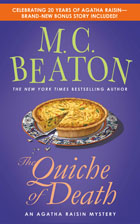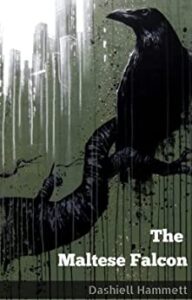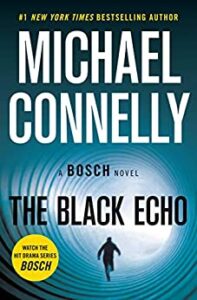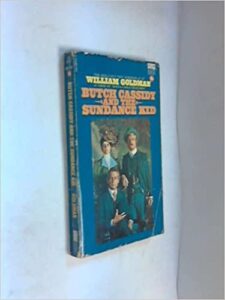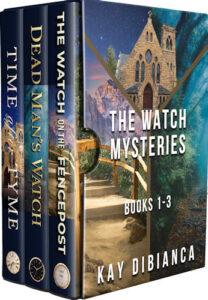
For years, my library colleagues would ask when I was going to write that library mystery. Afterall, I read mysteries, was a writer, and worked at library, so it seemed like a natural fit to them. While I thought about it I continued writing fantasy and science fiction.
Finally, in 2020, after I’d retired from the library, the desire to write a cozy library mystery novel grabbed me. As I finished the final novel in my Empowered series, I read a bunch more mysteries of all sorts, from Matthew Scudder to more Agatha Christie to Sara Rosett’s Murder on Location cozy series.
I also read books on writing mysteries: Mystery Writers of America’s How to Write a Mystery, How to Write Killer Fiction by Carolyn Wheat, our own KZB alum Nancy Cohen’s Writing the Cozy Mystery, Sara Rosett’s How to Outline a Cozy Mystery Workbook, as well as her Teachable course on writing cozies. Sara’s course also included interviews with cozy mystery authors like Lynn Cahoon and Anna Castle. I discovered very useful handouts at Castle’s website from a workshop she gave on mystery writing.
I read more mysteries, and watched mystery TV series like Midsomer Murders, Elementary, Monk, the new Father Brown series, Perry Mason, and Columbo.
My published fantasy novels had crime and mystery elements, so writing an actual murder mystery should be a snap, right?
I wasn’t surprised it wasn’t that easy. I consider actual mystery novels to be one of the hardest types of fiction to write, and took the challenge seriously, which was a good thing. From the time I began outlining my first library cozy mystery, then called Death Due, until I published the final version, A Shush Before Dying, over two years had passed. I wrote three different versions, with numerous outlines. I did a deep dive into upping my revision game after finishing the first draft.
The second book in the series, Book Drop Dead came faster, being completed in year.
I’m an outliner, who, once upon a time, discovery wrote (AKA “pantsed”) his novels. For me, figuring out story structure was the secret that unlocked being able to create a story that worked. Mysteries were no different.
Cozy mysteries, like other mysteries, usually center around a murder. For me, that meant learning who the murderer was, and why they committed the crime, before outlining the book. I began each book by creating an electronic document file which became a novel journal where I could brainstorm about the mystery, the killer’s shadow story (something I learned from our own James Scott Bell), spin out the web of suspects, background notes, and simple outlines I could flesh out later.
***
Mystery foundation
These make up the foundation of the mystery I’m building, and key to my process is asking myself questions about each.
Killer: Who and why? What lead them to kill, and why did they murder the victim? How do they react when they learn they are being investigated by our sleuth-hero?
The Victim: Often someone who is despicable in at least some of the time, and often at the center of a conflict, but they can be something other than a jerk—quirky perhaps, misunderstood, or even a good person who ran afoul of a killer. What was their relationship with the killer?
The setting: the location and community where the murder takes place. For my own cozy mystery, the setting was easy: the public library. I wanted the era to be the 1980s, when I began my at-first accidental career. This was the library before the Internet, when the card catalog ruled and staff used “dumb” terminals to check out books, stamping the date dues on a label on a page at the front of the book.
The public library then and now is a community in its own right, as well as a meeting ground for other communities, which provide opportunities for all sorts of situations and characters. How does the setting shape the murder, and the investigation?
The sleuth-hero: What pushes them to investigate the murder instead of leaving it to the police? Amateur sleuths are often nosy, curious, driven to solve puzzles. This describes my librarian-sleuth Meg Booker. The hero may be motivated to solve the crime because of personal concern if a friend is the suspect or survival if they themselves fall under suspicion.
In other cases, it may be the sense that thing about the murder doesn’t fit the facts as the police see them. The hero must have a reason to investigate and discovering that reason is vital. In cozy mystery the reason is often personal. The sleuth may have a connection to the victim, or to the person the police believe is the killer, as is the case in my first Meg Booker mystery.
The Web of Suspects: For me an ideal number of suspects is five to seven. The motivations can be similar, but it helps build the mystery if at least some have different motives for murder. For instance, two suspects might both be rivals with the murder victim for a job promotion, while three more have possible motives unrelated to the day job.
***
Plotting
The next thing I like to tackle is my story structure. I’m a fan of our own James Scott Bell’s signposts, such as the opening Disturbance, the Doorway to Act II, and especially the Mirror Moment. I brainstorm how the murder plays out, how the sleuth’s investigation begins and progresses, and what the killer does in response.
I’m an outliner, so I began putting the mystery into a beat outline, with sign posts marked and key scenes laid out. I’ll do additional brainstorming in a novel journal, a separate electronic document.
***
The Arc of Suspicion
I also work out what I call “the arc of suspicion,” which is the sleuth-hero and readers progression in who they suspect committed the crime. I posted about this here. I’m going to crib from that earlier post and share the beats of the suspicion arc. I don’t necessarily write all these out, but keep them in mind as the story progresses, brainstorming as needed:
- The arc begins with noticing something is off about someone’s behavior, or a set of circumstances.
- Doubt ensues.
- Then, discovering “evidence” which increases suspicion. This can be an overheard conversation, reading a note or email, seeing a meeting without hearing what is being said, looking at a pattern of behavior, perhaps behavior out of character for the suspect, etc.
- Discovering a lie, or a false alibi can heighten suspicion.
- There can be a deepening fixation on a suspect’s behavior, words, deeds, and trying to figure out what they were thinking, why they did what they did, etc.
- Acting on that suspicion to the point of taking risks and putting yourself in potential jeopardy. This often precedes the confrontation/reveal in the final act of a mystery.
- Given that mysteries usually have multiple suspects, there will be a point where the sleuth (and the reader) rule out a person because of evidence, alibi, or learning what the secret was that made a particular individual act suspicious to the main character.
- Of course, heroes and readers often suspect more than one character at the same time, so the arcs can overlap. Sometimes the behavior or evidence is one thing, which leads to doubt about a particular person. Doubt which might deepen to suspicion or might simmer in the background. Or, even forgotten for the moment, until the end, when new evidence makes the sleuth suddenly suspect that person with a cold-in-the-bones feeling.
- Finally, the sleuth’s suspicions lead to the actual killer and/or can lead the killer to them.
***
Drafting
As I write the first draft, I’ll come up with new ideas, clues etc., and, if they make the grade, will add them to my outline.
***
Revision and feedback
Revision is where I work to fix plot holes, add missing clues, clarify motives if needed, along with the usual revision tasks of improving scenes, pacing, characterization, setting details etc. I then send the revised novel to my beta readers, who give me invaluable feedback on whether the mystery worked for them, where they were surprised, if they guessed the identity of the murderer, etc. I then make any additional changes based their feedback.
***
The resources which helped me learn how to build a mystery
Nancy Cohen’s Writing the Cozy Mystery. Nancy’s book provides an instructive break down of the elements of a cozy mystery.
Sara Rosett’s How to Outline a Cozy Mystery. Rosett gives the building blocks of a cozy mystery, as well as different outlining methods, tips on clues and red-herrings, conventions of cozies etc. While Rosett’s online course on writing a cozy mystery appears to be no longer available, the book still is.
Carolyn Wheat How to Write Killer Fiction. Wheat looks “the funhouse of mystery” as well as the “rollercoaster of thriller,” and reading the book gives a useful comparison between the two as well as the elements of each.
Hallie Ephron Writing and Selling Your Mystery Novel. Ephron’s book is a deep dive into the elements of mystery, looking at plotting, characters, mystery, sense of place, revision, as well as advice on publishing, both traditional and self-publishing.
Mystery Writers of America How to Write a Mystery. A collection of essays by mystery masters also covers the different aspects of mystery fiction.
***
So, this is how I build a mystery. If you write mysteries, what tips you do have?


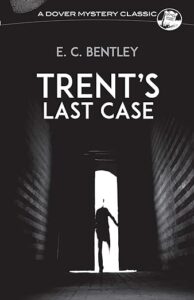
 Private pilot Cassie Deakin is in for a string of surprises when she lands in the middle of a murder mystery. Even Fiddlesticks the cat takes on a new persona that’s shocking.
Private pilot Cassie Deakin is in for a string of surprises when she lands in the middle of a murder mystery. Even Fiddlesticks the cat takes on a new persona that’s shocking.
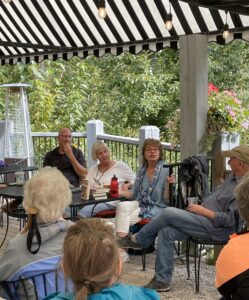 In the past, we had talked from the stage and needed sound equipment. Now we sat at chairs and tables in an area small enough that people could hear us without mics.
In the past, we had talked from the stage and needed sound equipment. Now we sat at chairs and tables in an area small enough that people could hear us without mics.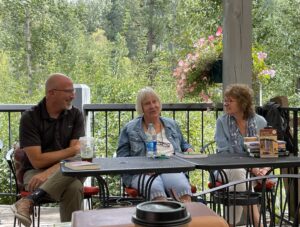



 When I was writing my first novel, a friend asked what kind of book it was. I said it was a cozy mystery, but she didn’t know what that was, so I explained, “It’s a mystery with no explicit violence, no explicit sexual content, and usually no profanity. After her cheerful, “I guess you realize there’ll be no audience” response, I pretended to smile. (I get that remark a lot.)
When I was writing my first novel, a friend asked what kind of book it was. I said it was a cozy mystery, but she didn’t know what that was, so I explained, “It’s a mystery with no explicit violence, no explicit sexual content, and usually no profanity. After her cheerful, “I guess you realize there’ll be no audience” response, I pretended to smile. (I get that remark a lot.)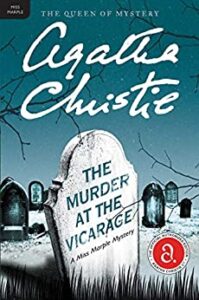 Classic Mysteries can be exemplified by Agatha Christie’s works. There is a crime, usually a murder, and the story is concerned with identifying the killer(s). Classic mysteries, like cozies, generally don’t include any explicit violence or sexual content, and there’s usually no profanity. Some of the notable entries in this category are Agatha Christie’s Miss Marple novels and Sir Arthur Conan Doyle’s Sherlock Holmes stories.
Classic Mysteries can be exemplified by Agatha Christie’s works. There is a crime, usually a murder, and the story is concerned with identifying the killer(s). Classic mysteries, like cozies, generally don’t include any explicit violence or sexual content, and there’s usually no profanity. Some of the notable entries in this category are Agatha Christie’s Miss Marple novels and Sir Arthur Conan Doyle’s Sherlock Holmes stories.